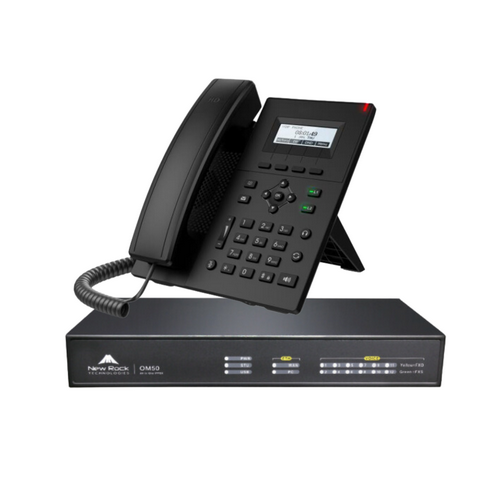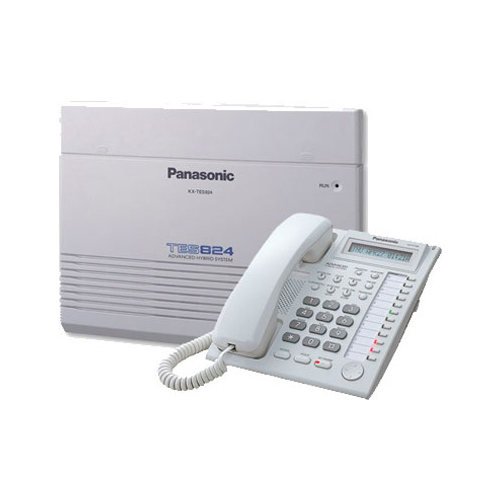Reliable Office Phone Systems in Singapore
Office phone system in Singapore designed for small and medium-sized businesses.
Enhance your communication and improve productivity with our tailored solutions.

Common Security Challenges Faced by Businesses in Singapore
Are you struggling with any of these common security issues?

Struggling to manage multiple lines and high call volumes?
Losing business due to missed or dropped calls?
Is your outdated phone system failing to support remote work?
But what if you could easily integrate a reliable, cost-effective office phone system that boosts communication and enhances efficiency?
Introducing Office Phone System in Singapore
Discover how our tailored office phone system solutions can revolutionize your business communication and enhance productivity.
Smart Call Management
Our office phone system offers advanced call management features, allowing you to handle multiple lines effortlessly. Enjoy seamless call transfers, voicemail-to-email, and automated attendants to ensure you never miss a call.

Mobile Connectivity
Stay connected on the go with our system's remote and mobile connectivity capabilities. Whether you're working from home or traveling, you can easily access your office phone system via mobile devices, ensuring constant communication.
Cost-Effective Solutions
Our office phone systems are designed to be cost-effective, reducing your overall communication expenses. Benefit from lower maintenance costs, minimal downtime, and scalable options that grow with your business.
What is a Business Phone System?
A business phone system is a specialized telephone network designed to meet the communication needs of office environments. Unlike standard residential phone systems, business phone systems offer a range of features and functionalities tailored to enhance business operations.
These systems enable effective communication within the organization and with external parties such as customers, clients, and partners. Business phone systems can be either on-premises, where the hardware is installed and maintained within the office, or hosted in the cloud, providing a flexible and scalable solution.
By integrating a business phone system, companies can manage calls and other communication channels efficiently, ensuring seamless connectivity and improved productivity.
Types of Office Phone Systems
Discover how our tailored office phone system solutions can revolutionize your business communication and enhance productivity.

VoIP Phone Systems
Voice over Internet Protocol (VoIP) or IP phone systems use the internet to make and receive calls. They offer high-quality voice communication, advanced features, and cost savings on long-distance and international calls.

PBX Phone Systems
Private Branch Exchange or PBX systems are traditional phone systems that route calls within your office network. They provide reliable, high-quality voice communication and are ideal for businesses requiring a robust internal call management system.

Cloud-Based Phone
Cloud-based phone operate through internet servers, offering flexibility and scalability. They are easy to set up, manage, and maintain, making them perfect for businesses looking for a modern, hassle-free communication solution.
Key Features of Office Phone Systems
Office phone systems come equipped with a variety of features designed to streamline business communication and enhance productivity. Some of the key features include:
Auto-attendant
This feature answers incoming calls and routes them to the appropriate departments or extensions, ensuring that calls are directed to the right place without the need for a human operator.
Call forwarding
Allows calls to be forwarded to other extensions or external numbers, ensuring that important calls are not missed even when employees are away from their desks.


Voicemail
Enables callers to leave messages when the recipient is unavailable, ensuring that important information is captured and can be responded to at a later time.

Conference calling
Facilitates multiple parties to participate in a single call, making it easier to conduct meetings and collaborate with team members or clients remotely.
Call recording
Allows businesses to record calls for quality control, training purposes, and compliance with legal requirements.
These features can be customized to meet the specific needs of the business, improving overall communication and operational efficiency.
Benefits of Office Phone Systems
Explore the advantages of office phone solutions.

Improved Efficiency
Streamline communication with features like call forwarding and conferencing for improved collaboration and productivity.
Professional Image
Impress clients with customizable greetings and automated attendants, projecting a polished and organized business image.
Scalability
Easily expand your phone system as your business grows, ensuring seamless communication regardless of size or scale.
Common Mistakes to Avoid When Selecting a Business Phone System
Selecting the right business phone system is crucial for ensuring effective communication and operational efficiency. Here are some common mistakes to avoid:
Not considering the specific needs of the business: It’s essential to choose a phone system that meets the unique requirements of your organization and its employees.
Not evaluating the total cost of ownership: Beyond the initial purchase price, consider the costs of hardware, maintenance, and potential upgrades when selecting a phone system.
Not considering scalability: Ensure that the phone system can grow with your business, allowing you to add or remove users and features as needed.
Not evaluating the reliability and uptime of the system: A reliable phone system with minimal downtime is critical to maintaining smooth business operations and minimizing disruptions.
By avoiding these common pitfalls, businesses can select a phone system that aligns with their needs, enhances communication, and boosts overall productivity.

Why Choose Us:
Discover why our telephony solutions stand out from the rest.
Expertise: Benefit from our extensive experience and expertise in providing tailored security solutions for businesses in Singapore.
Customer-Centric Approach: We prioritize understanding your unique needs and providing personalized solutions that exceed your expectations.
Reliability: Count on us for reliable service and support, ensuring your business's security needs are met efficiently and effectively.
One-stop Solution: Offering integrated solutions, including CCTV, door access, and alarm systems, ensuring convenience for businesses in Singapore.
Reach Us
You can reach out to us via whatsapp us too.

Leave A Message
FAQ
Find answers to common queries about office phone system solutions below. If you have additional questions, feel free to reach out to us.
What is the IP phone system?
The IP phone system, or Internet Protocol phone system, uses the internet to transmit voice calls instead of traditional phone lines. It converts audio into data packets for transmission over the internet, offering flexible and cost-effective communication solutions.
What is the difference between VoIP and PBX?
VoIP (Voice over Internet Protocol) is a technology used for making voice calls over the internet, while PBX (Private Branch Exchange) refers to a private telephone network used within an organization. VoIP can be a feature of a PBX system, but PBX systems can also use traditional phone lines.
Do people still use PBX?
Yes, many businesses still use PBX systems for their internal communication needs. While newer technologies like VoIP have gained popularity, PBX systems remain relevant due to their reliability, security, and ability to integrate with existing infrastructure.
Is PABX same as PBX?
Yes, PABX (Private Automatic Branch Exchange) is essentially the same as PBX (Private Branch Exchange). Both terms refer to private telephone networks used within organizations, with PABX being a variation of PBX.
